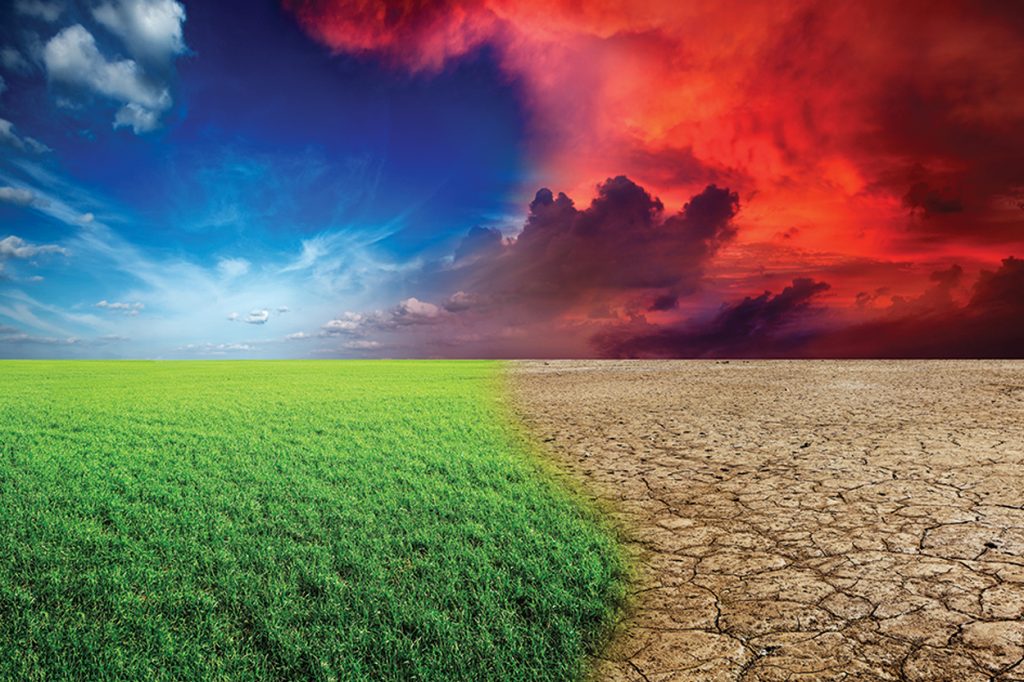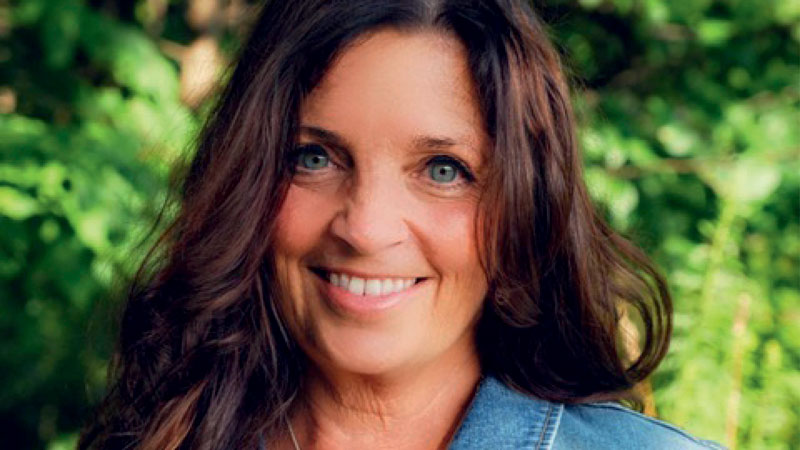Climate Change Can Lead to Mental Health Issues
By Debbie Sturm, PhD, LPC, LPC-C
January 2025

Following hurricanes Helene and Milton this past fall, I found myself immersed in the coverage, listening to stories of loss and survival. I remember an Instagram post that simply said, “We are grieving with you.” A gentle, yet powerful, gesture — to grieve with another.
Evidence of the social, systemic and physical disruption of the climate crisis is everywhere. Climate change is bringing increased frequency, intensity and duration of natural disasters, shorter time periods for post-disaster recovery before a new threat emerges, and increased concern for our future well-being. And while the psychological impact of disasters may be familiar to us, we are only starting to understand the full psychological impact of climate change, from living with extreme heat, drought and compromised growing seasons, to poor air quality, social and economic disparities and an uncertain future. As the climate changes, the lives of individuals, families and communities are deeply impacted.
In 2018, ACA issued a call-to-action acknowledging climate change as the crisis of the century, extending an invitation to counselors to address the mental health impacts of climate change. Counselors’ understanding of the climate crisis and its impact on clients, communities and themselves is essential to weathering what’s next. This is our present — and our future.
In the big picture, counselors should seek a general understanding of the fundamentals of climate change to better conceptualize the impact it is currently having and will continue to have on our clients and communities. We want to gain awareness of how climate change is fueling increased frequency, intensity and duration of natural disasters, as well as negatively affecting those who are already socially vulnerable. And we want to acknowledge that people, particularly our most vulnerable neighbors, are experiencing greater levels of distress and anguish over wildfires, floods, hurricanes, drought, extreme heat and the emergence of new diseases in new places.
Climate Change’s Effect on Mental Health
According to the World Health Organization, climate change-related issues exasperate depression, anxiety, post-traumatic stress disorder and pre-traumatic stress, fear, eco-grief, irritability, anger, violence and loneliness. Climate change is both universally traumatic and regionally nuanced. Yet psychological wounds may go unnoticed.
So how do we experience climate change-related mental health issues? Think about three general directions. The first involves the mental health impact of hearing about, examining and being realistic about the climate crisis. This may be the home of eco-anxiety, existential dread and climate grief.
Second are the mental health issues exacerbated by the climate crisis (heat, drought, displacement, disaster). For example, extreme heat and wildfire smoke-filled air can negatively affect cognitive functioning, increase anxiety and result in increased use of emergency rooms for mental health crises.
Third are the mental health issues directly caused by the impact of a climate-related event. This is what we would typically think about in relation to disaster mental health and recovery. But with the increased frequency of disasters, we must factor in a more complicated recovery process that, like with hurricanes Helene and Milton, may be interrupted by a second disaster.
Understanding the impact of the climate crisis includes recognizing and validating experiences and stories of a sense of place and place attachment, nature deficit, trauma, loss and displacement from disasters, eco-anxiety, ecological grief, anxiety and depression, traumatic responses, and other mental health concerns.
Climate Justice
As the climate changes, families, communities and lives will continue to be affected. And, as it is true with so many other aspects of change, our most vulnerable neighbors — individuals with low income, some communities of color, individuals with limited English proficiency and immigrant groups, Indigenous people, children, pregnant people, older adults, persons with disabilities, and persons with preexisting or chronic medical conditions — are the most vulnerable. Exposure to air pollution and environmental threats such as wildfires and flooding affect marginalized populations at a disproportionally higher level.
Social justice is a core value of the counseling profession, and climate change is fundamentally a social justice issue. “Climate justice” represents the intersection of climate change and social justice and is inclusive of environmental justice and environmental racism. This recognizes that our most vulnerable neighbors, who already carry a disproportionate vulnerability, experience additional and disproportionate impacts from the changing climate.
This is a counseling social justice issue and an invitation to each of us to look closely at the vulnerabilities among our clients and in our communities. While climate change is a massive global issue, it is also local and intensely personal. As counselors, knowing and understanding our communities, the history of inequity and neighborhoods with intersecting social and environmental vulnerabilities can help us better address and support our clients (and each other) when faced with a climate-related stressor.
Children and Youth
Children and youth have their own unique constellation of experiences related to climate change and their mental health. They have a vantage point that includes concern about their future and dependency on earlier generations to make timely, meaningful change to protect their ability to make a range of choices about how their future will go.
In a large international study of over 10,000 youth, Caroline Hickman and colleagues discovered feelings of hopelessness, despair, anxiety and frustration about climate change. More than 60% of participants reported feeling very or extremely worried about climate change, and more than 60% felt dismissed by older generations and decision makers, feeling as though their voices were not valued. Nearly 70% of youth reported feeling betrayed.
We should consider the lived experience of Generation Z and younger generations, the first generations to live their entire lives with the reality of school shootings, social and political unrest, a pandemic and climate change. Counselors could best serve young people by leaning into cultural and generational humility, centering youth voices and co-creating opportunities for empowerment.
What Can We Do?
So, what can you do to increase your climate awareness? Here are few ideas:
- Recognize the connection between climate change and mental health, including eco-grief, trauma and resilience, and examine ways in which training programs, supervision, continuing education and other initiatives can better prepare counselors for client work and community climate resilience efforts.
- Connect your understanding of trauma, vulnerability and resilience to our classrooms, training and advocacy to effective prevention and intervention that specifically addresses the unique climate change threats to your community or region.
- Apply professional skills as counselors and supervisors to illuminate the connection between climate change and inequality, specifically as it pertains to vulnerable people and places. Consider theoretical approaches, such as Relational Cultural Therapy, that center humility, mutual empathy and the necessity of deep connections.
- Connect our work as social justice advocates to the complex relationship between racial inequality, environmental vulnerability and increased risk for climate change effects in communities of color.
- Finally, take care of yourself. Counselors are exposed to the climate crisis in the same way as many clients. Be attentive to fostering emotional resiliency and engage in practices that will help mitigate your own climate burnout.
Climate change is a wildly complex issue, and it can be quite easy to become overwhelmed. Connecting to the needs and experience within your community or region, the particularly personal nuance that impacts those closest to you, can help you also connect to a sense of empowerment and efficacy in supporting your clients and community.

Debbie Sturm, PhD, LPC, LPC-C, is a professor with James Madison University’s PhD in counseling and supervision program and a counselor with Anchor Counseling Services in Mentor, Ohio. She was a member of ACA’s Climate Crisis Task Force and past chair of the Human Rights Committee. In 2017, she wrote the first article on climate and mental health to appear in Counseling Today. Since then, she has published two book chapters, two encyclopedia entries and more than a dozen peer-reviewed journal articles on the impact of climate on mental health.


